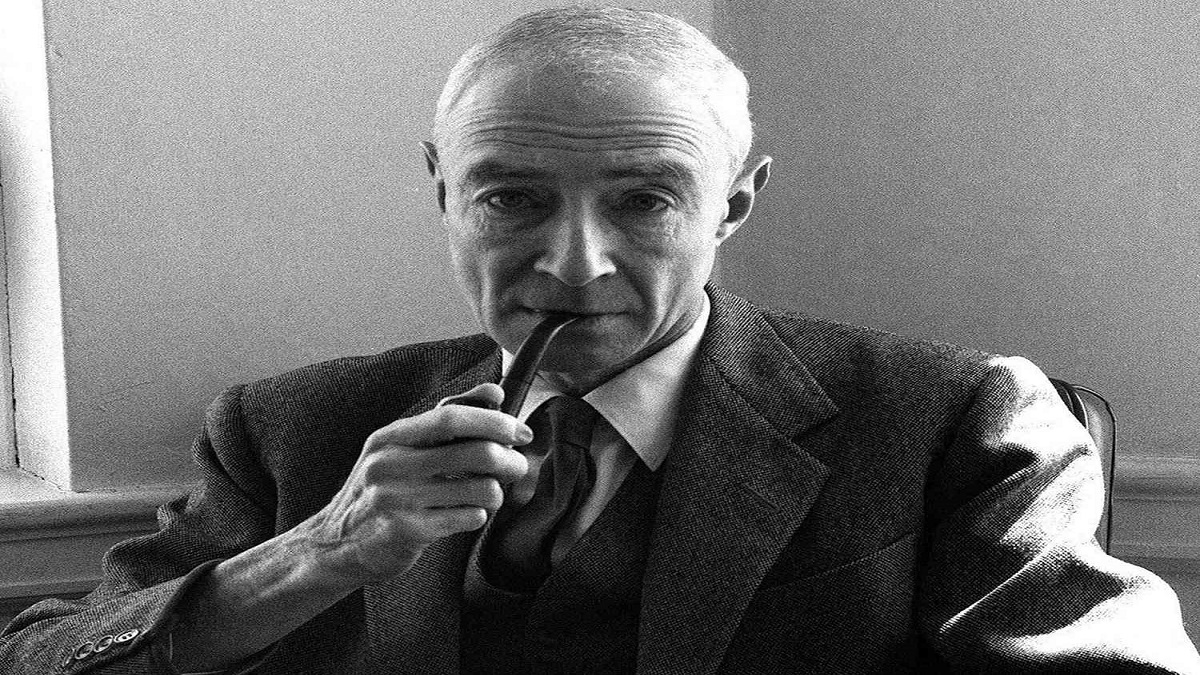Oppenheimer’s contributions to science and the advent of nuclear weapons are monumental. The great physicist J. Robert Oppenheimer was instrumental in the Manhattan Project, which developed the first atomic weapon during World War II. His scientific discoveries and moral conundrums have had far-reaching effects. The biography of J. Robert Oppenheimer, the scientific breakthroughs he produced, and the lasting legacy he left are all explored in this in-depth study.
The Early Years of J. Robert Oppenheimer
· Childhood and Education
J. Robert Oppenheimer, who was born on April 22, 1904, in New York City, was brought up in a family that valued education. His German-Jewish parents, Julius S. Oppenheimer and Ella Friedman, gave him a strong cultural foundation. His early enthusiasm for both science and literature was enthusiastically supported by his parents. Oppenheimer received his early education at the Ethical Culture School and his undergraduate education in chemistry and physics at Harvard University.
· Emergence as a Brilliant Scientist
Oppenheimer attended several illustrious schools during his academic career, including Cambridge University and Caltech. One of the most promising young physicists of his era, his work in quantum mechanics and spectroscopy was groundbreaking.
The Manhattan Project: A Turning Point
· The Call to Duty
When World War II broke out, the United States knew it had to act quickly to catch up to the Axis nations in the scientific arena. The Manhattan Project was a secret government effort to create an atomic weapon, and in 1942 J. Robert Oppenheimer was named the project’s scientific director.
· The Trinity Test
The Trinity Test, which detonated the first atomic bomb, occurred on July 16, 1945, in the New Mexico deserts. As he saw the bomb detonate, Oppenheimer famously recited a passage from Hindu scripture: “Now I am become Death, the destroyer of worlds.”
· The Moral Dilemma
Oppenheimer and his colleagues experienced both amazement and fear with the completion of the Manhattan Project. The atomic bomb’s deadly potency prompted serious ethical concerns concerning their deployment. Oppenheimer later campaigned for global regulation of nuclear power in an effort to curb the spread of nuclear weapons.
The Aftermath and Legacy
· Post-War Controversies
Oppenheimer was under criticism during the McCarthy era despite his many accomplishments. He was accused of being disloyal due to his political leanings and friendships with the left. His reputation took a short-term hit once his security clearance was terminated.
· Scientific Contributions Beyond the Bomb
Oppenheimer’s scientific accomplishments extended well beyond his role in developing the atomic bomb. He eventually rose to prominence as an advocate for theoretical physics and the head of Princeton’s Institute for Advanced Study, where he worked with a number of other prominent scientists.
· The Oppenheimer Legacy Today
There is much more to J. Robert Oppenheimer’s legacy than just the atomic bomb. His influence on academia, science, and culture was profound. Many researchers owe a great deal to his pioneering work in quantum theory and his influential function as a teacher.
Conclusion
Human intelligence and the intricacies of moral duty are on display in J. Robert Oppenheimer’s rise from inquisitive little boy to director of the Manhattan Project. His legacy, which includes both scientific breakthroughs and deep moral reflection, serves to emphasize the importance of making ethical use of scientific knowledge.
FAQs
Did Oppenheimer regret his involvement in the Manhattan Project?
While Oppenheimer grappled with the moral implications of his work, he never explicitly expressed regret. Instead, he advocated for the peaceful use of atomic energy.
What were Oppenheimer’s post-war contributions to physics?
Oppenheimer made significant advancements in quantum mechanics and contributed to the understanding of subatomic particles.
Was Oppenheimer’s security clearance ever reinstated?
Yes, in 1963, after significant public outcry and reassessment of the case, Oppenheimer’s security clearance was reinstated.
Did Oppenheimer win a Nobel Prize for his work?
No, despite his contributions, Oppenheimer did not receive a Nobel Prize during his lifetime.
How did Oppenheimer’s legacy influence the nuclear non-proliferation movement?
Oppenheimer’s advocacy for international control of atomic energy laid the groundwork for the nuclear non-proliferation efforts that followed.











